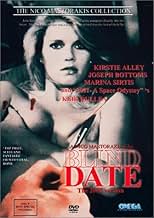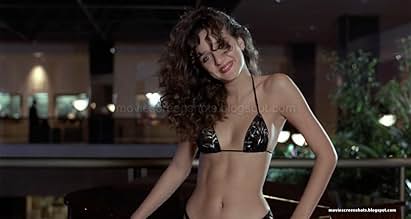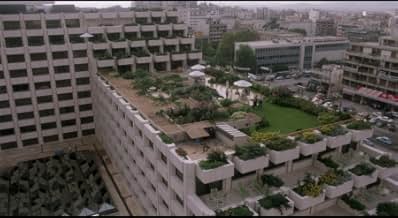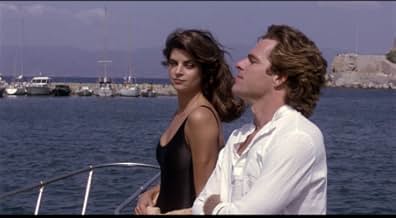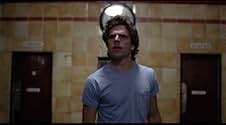This is an excellent film. The thing that struck me first was that this was a serial killer flick in which the police hardly figure at all, you see them once or twice from a distance. You have two stories running in parallel until finally, and inevitably, they cross.
The second thing that really got me thinking is that our agent of justice probably got the wrong man. The evidence we have is far too circumstantial and would have been thrown out by any right minded jury, if the judge had not already dismissed the case.
Was the real killer driving the cab from which Kirstie Alley's character fled?
The character of Jonathan Ratcliff is interesting because, whatever his virtues might be, he is also a stalker. And we discover that when he is blinded there is no physical reason for his disability. On some subconscious level he has chosen not to see, and when he is given a device which enables him to see, after a fashion, it is in black and white and works on the same principle as sonar, that is it reflects back the signals he sends. He no longer sees the whole picture, and neither do we.
The concept of blind Justice is on one level a reassuring one since everyone is equal irrespective of race, creed, power etc.. However, on the other hand, Justice is blind! This could mean that it cannot differentiate between the innocent and the guilty.
In the film the character of Jonathan Ratcliff is living out a fantasy, when at the end he is asked by the woman he has just 'rescued' what his name is he replies, 'A friend': like a guardian angel or a comic book superhero. He is a voyeur who has been forced to take a role, to follow a destiny and he shapes that destiny himself.
The film itself is well put together and there are some wonderful Hitchcockian touches, especially in the way it exploits the blindness of the central character and the limitations and possibilities of the electronic device that substitute for his eyes.
I rate this film 8 out of 10, very thought provoking.



